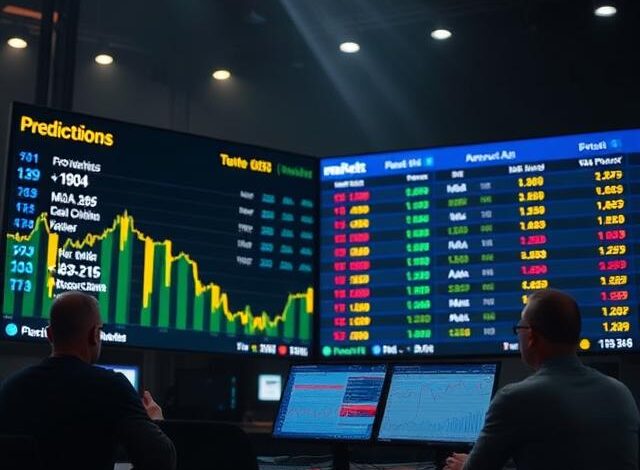Prediction Markets Face Scrutiny but Gain Traction in Gaming

The betting industry is abuzz with discussions about prediction markets, especially after the surge in betting during the 2024 US Presidential Election. Companies like Kalshi and Robinhood have expanded their prediction market offerings, but this growth has not come without hurdles.
Legal challenges have emerged in states like New Jersey, Ohio, and Maryland, alongside scrutiny from the Commodity Futures Trading Commission (CFTC). Recently, the CFTC sought approval to resolve its dispute with Kalshi in the US Court of Appeals for the District of Columbia Circuit, though it provided no details on a potential dismissal. Prediction Markets Gaming
A panel discussion at the SBC Summit, featuring Alex Kane, Founder and CEO of Sporttrade, and David Aron, Counsel at Jones Day, explored the future of prediction markets. They addressed whether these markets pose a threat to the broader betting landscape. Aron highlighted the CFTC’s concerns about a proposed deal with the NFL that would allow sports contracts to be traded, which the agency deemed “anti-competitive.” He noted, “There was no guidance Congress ever gave the CFTC to accurately describe the operation of these offerings, and therefore the CFTC never went along with approving these deals with the NFL.” Aron also pointed out the lack of clarity on how such contracts might impact the public from a gambling or commercial perspective.
Focusing on Kalshi, Aron compared its recent efforts to a 2021 NFL agreement that was rejected, noting that slight differences in the current approach triggered legal actions in multiple states. Daniel Wallach, Founder of Wallach Legal, argued that there is “no congressional authorization” for sports event contracts. He criticized Kalshi’s actions, stating, “At best what Kalshi is doing today is gaslighting. At worst they are committing a fraud on the courts by saying congress would allow this.” Wallach suggested that Kalshi’s recent court victories stem from inadequate opposition by state attorneys general, but he predicted that if these offerings are classified as bets or wagers, Kalshi could face setbacks in higher courts.
Read also: North Carolina Sports Betting Revenue Closes April with Gains Despite Year-Over-Year Drop
In contrast, Alex Kane offered a different perspective, arguing that the public and regulators often misinterpret prediction markets due to the influence of legal experts like Wallach and Aron. He emphasized that current offerings are “very, very, very different” from the sports event contracts regulators fear. “We’re 100x off from what sports betting and sports event contracts are currently being offered. The only thing that is similar is you are risking money, and it involves sports,” Kane explained. He described prediction markets as exchange-based systems that offer competitive odds, unlike traditional sports betting platforms like DraftKings.
Kane also referenced a letter Sporttrade sent to the CFTC, seeking no-action relief and introducing their approach. He criticized Wallach for overlooking existing CFTC views on event contracts, which Kane believes provide sufficient flexibility due to strong public interest. Beyond Kalshi and Robinhood, other operators are eyeing prediction markets. Paul Adams, Marketing Operations Manager at BetMGM Canada, hinted at his company’s interest, while Flutter CEO Peter Jackson, during a Q1 2025 earnings call on May 9, confirmed that his company is closely monitoring developments in futures markets.
The legal landscape remains complex, with a notable development in New Jersey, where the District Court issued a temporary restraining order and preliminary injunction in Kalshi’s favor on April 28, against the state’s Division of Gaming Enforcement. As prediction markets continue to evolve, their staying power seems evident, driven by operator innovation and growing bettor interest, though regulatory clarity will be crucial for their long-term success. Prediction Markets Gaming












